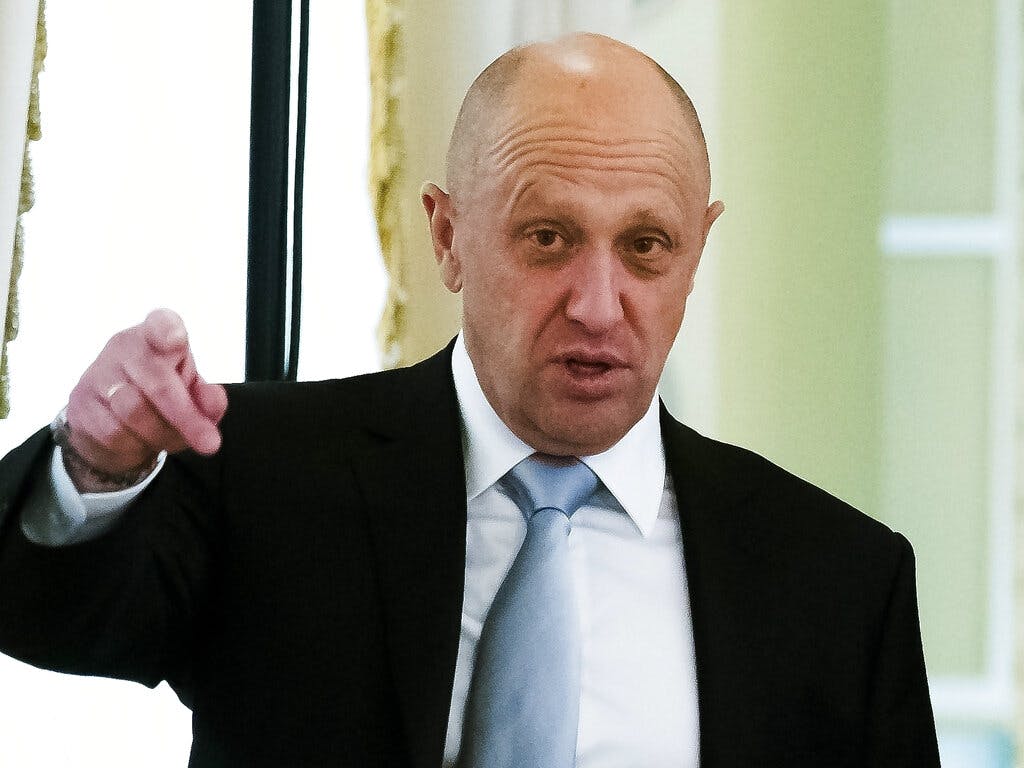Is Russia’s Wagner Group Boss Really Meddling in American Elections?
Regardless, the current attempts to interfere, however insidious and despite the bluster from St. Petersburg, appear to have been a flop.

If there is one thing that unites the members of Vladimir Putin’s inner circle it is sowing division, and a new claim by a Russian businessman with close ties to Mr. Putin that he is interfering in America’s elections fits that bill. Yet whether there is any depth to Yevgeny Prigozhin’s statement is less clear, and may raise more questions about the relationship that the entrepreneur known familiarly as “Putin’s chef” has with the Kremlin than with purportedly unknowing American voters.
The 61-year-old Mr. Prigozhin is a close confidant of Mr. Putin and both men hail from St. Petersburg. That Russian city is also since November 4 the home to a gleaming, multistory new headquarters of the Wagner mercenary group, a private army that operates with tacit Kremlin approval and has sent thousands of fighters to Ukraine to bolster Russian troops, particularly in the eastern Donbas region. Mr. Prigozhin admitted in September that he founded the mercenary group in 2014.
This week’s admission — if that is the correct word for it — by Mr. Prigozhin that he has tinkered with American elections came about through less provable means, which is to say via the Internet. Last week Bloomberg reported that “social media users tied to Russia” have been using political cartoons in attempts to sway some electoral races ahead of the U.S. midterms. According to Bloomberg, “members of a Russian group accused of meddling in prior US elections have pushed Internet memes” promoting right-wing conspiracy theories “in a way that aims to undermine support for Democratic political candidates.”
Mr. Prigozhin was fielding questions about the Bloomberg article on his Telegram channel on November 7 when he stated, “Gentlemen, we have interfered, are interfering and will interfere. Carefully, precisely, surgically and in our own way, as we know how to do.”
To that bit of braggadocio he might have added: ineffectively. It is true that Mr. Prigozhin is affiliated with Russia’s so-called Internet Research Agency, which like his Wagner private military contractor group is based at St. Petersburg. The IRA created fake Facebook accounts in the past, and in 2018 a grand jury indicted Mr. Prigozhin, 12 other Russians, and the Internet Research Agency as part of special counsel Robert Mueller’s investigation into alleged Russian election interference. Mr. Prigozhin has been sanctioned by the Treasury Department, and last year the FBI placed him on its most-wanted list.
Yet the current attempts to interfere, however insidious and despite the bluster from St. Petersburg, appear to have been a flop. Bloomberg reported that “the efforts have gained limited traction online.”
That may have been what prompted the White House press secretary, Karine Jean-Pierre, to say on Monday — one day before Americans went to the polls — that Mr. Prigozhin’s comments “do not tell us anything new or surprising.” She added: “It’s well known … that entities associated with Yevgeny Prigozhin have sought to influence elections around the world, including the United States. The U.S. has worked to expose and counter Russia’s malign influence efforts as we discover them.”
Mr. Prigozhin himself is a man of protean entrepreneurial talents but also something of a curious cat, even by modern Russian standards. As the Sun has reported, only last week he characterized Ukraine’s president, Volodymyr Zelensky, as “a strong, confident, pragmatic and nice guy,” throwing in for good measure that the leader shouldn’t be underestimated.
Now, as America votes and the press latches on to any semblance of renewed Russian meddling in American elections, it is also prudent to not underestimate Mr. Prigozhin. There is very little a figure so close to Mr. Putin will say or do publicly without being fully aware of how the Russian president will react, and by the evidence Mr. Prigozhin is of a mind to impress his unofficial boss. The Russian dissident Mikhail Khodorkovsky, for instance, recently claimed Mr. Prigozhin was behind the appointment of a tough-as-nails Russian general, Sergey Surovikin, to manage Moscow’s war in Ukraine.
The suggestion of Russian interference in elections today could amount to little more than a Putin-pleasing maneuver on the part of the man whose catering business has supplied many of the strongman’s dinner galas. So though reports of renewed Russian meddling may flicker across screens as America votes, hackles need not be unnecessarily raised. At the same time, it can be hoped that President Biden will follow through on Ms. Jean-Pierre’s assertion that his administration will work to counter Moscow’s malign influence.

